Keywords: Global Financial Crisis
There are more than 200 results, only the first 200 are displayed here.
-
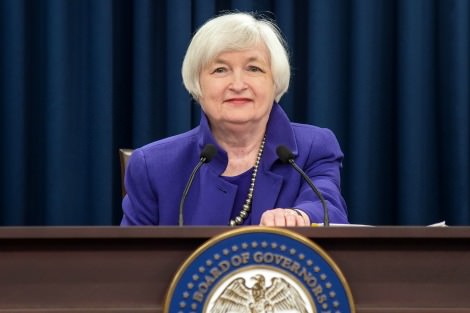
ECONOMICS
- David James
- 19 January 2016
11 Comments
Low interest rates tend to change the understanding of risk; having high debt seems to be less of a problem because the cost of servicing it is lower. This cavalier attitude has been especially evident in Australian households, which have racked up more debt relative to the size of the economy than any other country in the world. The massive appetite for debt has been replicated across the globe. The world may have survived the era of casino money - just - but it is now facing another crisis.
READ MORE 
-
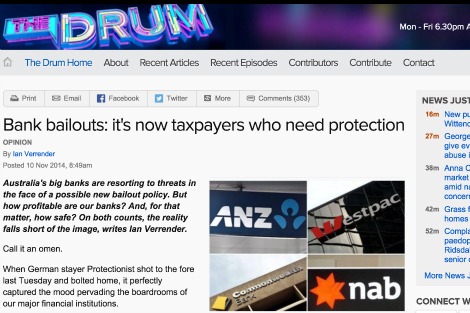
AUSTRALIA
- Justin Glyn
- 14 December 2015
4 Comments
There is a new proposal from Prime Minister Malcolm Turnbull that those convicted of terrorism offences are to be remanded in jail even after they finish serving their sentences. Given that the pressing of terrorism charges has already proven to be a highly subjective practice, there is good reason to fear that any new powers to detain people beyond the expiration of their sentences for terrorism offences will, like the offences themselves, be applied in a politically selective manner.
READ MORE 
-
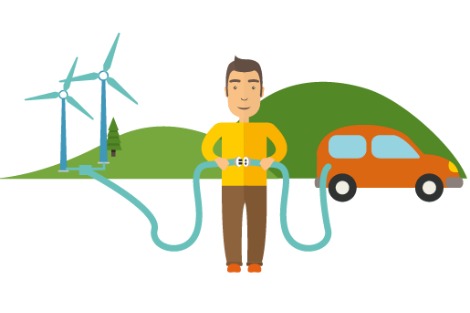
ENVIRONMENT
- Fatima Measham
- 11 November 2015
6 Comments
The UN Climate Change Conference in Paris is set to become the last opportunity for meaningful global action. The signs so far bear optimism, as the impetus for a binding international agreement to tackle the severity and effects of climate change has taken a turn. In order to better understand why, and appreciate the difference that a few years can make, it is worth revisiting why Copenhagen was such a disaster. The most meaningful difference between then and now involves leaders.
READ MORE 
-
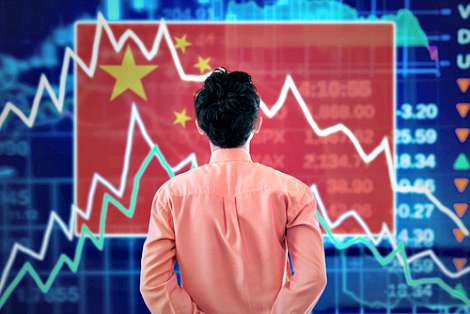
ECONOMICS
- David James
- 14 September 2015
1 Comment
The recent ructions in the Chinese stock market set off great consternation in global financial markets, but for the most part this was a display of ignorance. One of the reasons China’s influence on global markets has been so beneficial, since at least 2007, is that its economy and financial markets are so different.
READ MORE 
-
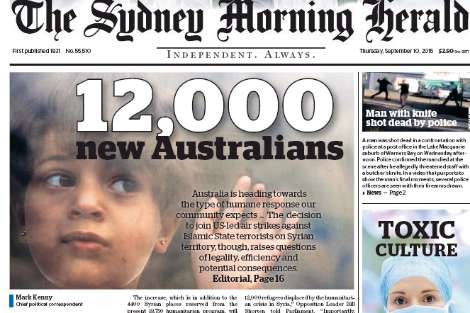
AUSTRALIA
- Andrew Hamilton
- 11 September 2015
16 Comments
A fortnight ago political conversation about asylum seekers had to do with turning back the boats, the links between terrorism and religious identity, exporting our Stop the Boats policy to Europe, the seductive dangers of compassion, and attempts to wedge other parties on the basis of their softness. Now it appears we have moved on, and for that Mr Abbott deserves our ungrudging gratitude, whatever side of politics we stand on.
READ MORE 
-

AUSTRALIA
- Fatima Measham
- 11 August 2015
12 Comments
Words like rorter, bludger and leaner only ever seem to apply to those who apply for welfare. A politician who draws down unreasonably on entitlements or a banker who earns stratospheric bonuses are seen as passive beneficiaries of the system. It seems the case that only those with power or capital are allowed to blame systems. The rest of us get to be individuals who make choices.
READ MORE 
-
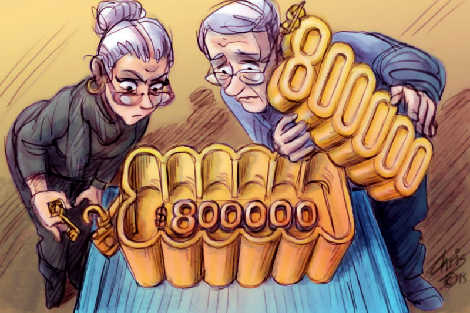
ECONOMICS
There has been great pressure on both of the major political parties to stop giving so-called rich retirees partial pension income. The conventional view has become that retired millionaires should not be feeding off the public teat. But in terms of income, many of those 'rich retirees' would actually be better off on the pension.
READ MORE 
-
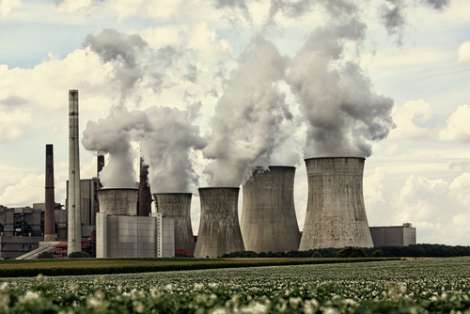
AUSTRALIA
- Andrew Hamilton
- 27 July 2015
15 Comments
The Federal Government's ethical argument for coal is that it is the most readily available and cheapest resource for generating electricity for the development of poorer countries. The structure of this argument based on our duty to the poor is significant. It assumes that governments, mining companies, banks and the people who invest in them a duty to consider the effects of their actions on people both in their own nations and in other nations.
READ MORE 
-
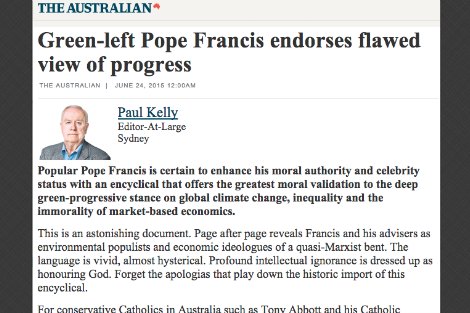
RELIGION
- Bruce Duncan
- 10 July 2015
37 Comments
In a series of articles, The Australian newspaper has strongly criticised the new encyclical Laudato Si', with editor-at-large Paul Kelly charging that the Pope has 'delegitimised as immoral' pro-market economic forces. This is wrong. Pope Francis is not opposed to the free market in principle, but insists that it be well regulated to ensure social justice for all involved.
READ MORE 
-
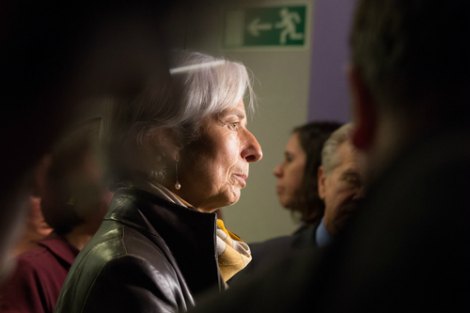
ECONOMICS
International Monetary Fund prescriptions have a long history of failing, and countries that ignore them are often the ones that do surprisingly well. Few have been asked to be more servile than the Greeks. When the IMF came in with what is amusingly referred to as its austerity 'plan', the Greek economy was expected to grow at over 2 per cent. After the 'plan' had taken effect, the country’s economy had shrunk by a quarter.
READ MORE 
-

ARTS AND CULTURE
- Tim Kroenert
- 05 March 2015
Abel's life is pointedly contrasted with Peter's, a young truck driver who has been the victim of several violent assaults on the job. Peter idolises Abel, for whom the Dream has apparently come true — if Abel can make it, so too can Peter. The problem is that Abel's Dream stands on the backs of ordinary workers like Peter. Peter is a tragic antihero coming to learn that for many, the Dream will remain just that.
READ MORE 
-
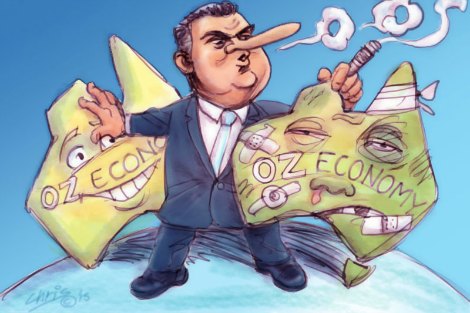
AUSTRALIA
- Colin Long
- 09 February 2015
19 Comments
The Coalition Government falsely claims that Medicare co-payments and cuts to welfare and publicly funded institutions such as the CSIRO and the ABC are necessary to 'fix Labor's mess'. There are indeed structural problems with the economy, but essentially the plan is to strip the public sector by cutting universal access to a range of services that also includes tertiary education, to create a dominant free market that marginalises Australians on low incomes.
READ MORE 